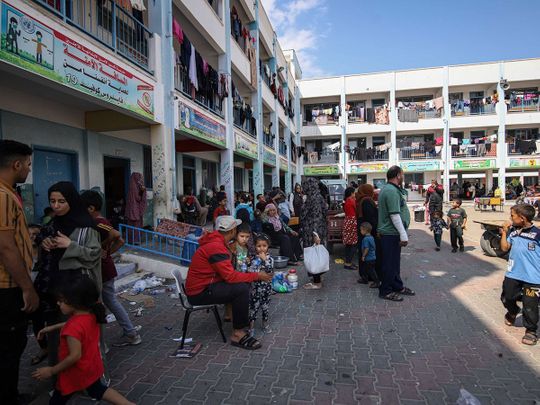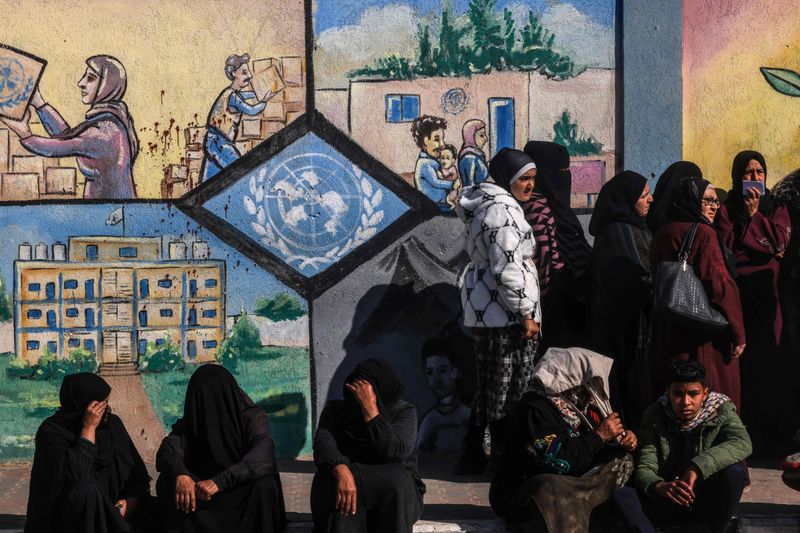
In the midst of Gaza’s escalating humanitarian crisis, the United Nations Relief and Works Agency for Palestine Refugees in the Near East (UNRWA) finds itself in a survival crisis.
The UNRWA, established by the UN General Assembly in 194, was created to provide assistance, protection, and advocacy for approximately 5.9 million Palestinian refugees in the Near East. Since the Israel’s war on Gaza started on 7th of October 2023, UNRWA has been also serving as the primary humanitarian organisation in Gaza, and provides essential services such as shelters, food, and primary health care to over 1 million people.
The International Court of Justice recently mandated Israel to enable the provision of urgently needed services and humanitarian aid to Palestinians in Gaza, highlighting the critical role of UNRWA, which has already lost 152 of its staff to the war.
Undermining UNRWA’s mission
However, the agency is facing serious funding challenges since the last week. At least thirteen Western countries, including the US, the UK, Germany, Sweden and others, have abruptly suspended their funding. This decision was made after Israel alleged that about a dozen UNRWA employees in Gaza were involved in Hamas attacks on Israel on October 7.
The withdrawal of funds from these major donors threatens UNRWA’s operations and its ability to provide essential services to Palestinian refugees at this extremely critical period not only in Gaza but also refugee camps in the West Bank, Jordan, Syria, and Lebanon.

There is no doubt that the immediate and potential long-term impacts of the funding suspension are deeply concerning. In the short term, UNRWA faces a financial crisis that could disrupt its ability to provide essential services.
Nearly half of Gaza’s population relies on UNRWA facilities, and any reduction in the agency’s operational capacity could have catastrophic humanitarian consequences. In the long term, the undermining of UNRWA’s mission could destabilise the region further.
Moreover, the collective nature of the punishment, implicating the entire population for the alleged actions of a few, disproportionately affects innocent civilians, especially children, who constitute the primary beneficiaries of UNRWA’s services. Such punitive measures ignore the principle of individual accountability and undermine the humanitarian imperative to provide aid based on need, not political considerations.
The majority of those affected by the funding suspensions are individuals who rely on UNRWA for essential services that are unavailable elsewhere in the war-ravaged Gaza. Children, who are particularly vulnerable to the impacts of war, and blockade, face a grim future.
The broad application of these punitive measures not only violates basic humanitarian principles but also risks deepening despair among millions of Palestinians, further entrenching cycles of violence and poverty while impeding efforts towards a peaceful resolution to the long-standing Israeli-Palestinian conflict.
Israeli policy objectives
Addressing the humanitarian needs in war-torn Gaza is urgent and critical. The relentless Israeli attacks have intensified the humanitarian crisis in Gaza, increasing the population’s reliance on UNRWA’s services. Cutting off funding could lead to dire consequences. Yet, amid this dire backdrop, glimmers of solidarity emerge.
The UAE, Spain, and Norway and several others stand out for their unwavering support, championing UNRWA’s indispensable role amid Gaza’s distress. UAE’s foreign minister has called on the countries that have suspended their funding to UNRWA to “urgently reconsider this decision.”
The broader political motives behind the suspension of funding to the UNRWA can be seen through the prism of Israeli policy objectives concerning Gaza and the Palestinian refugee issue.
Israel stresses that UNRWA’s existence and its activities, especially in Gaza, allow for an anti-Israel sentiment and the continuation of a refugee status for Palestinians across generations, which Israel contends undermines the possibility of a negotiated settlement by inflating the number of refugees.
The funding suspensions, therefore, not only exert financial pressure on UNRWA but also serve to further Israeli objectives of redefining the refugee issue, weakening an institution that symbolises international recognition of Palestinian refugee rights, and potentially reducing the support available to Palestinians in Gaza and elsewhere.
The international community has a recognised responsibility under international law to protect civilians and ensure their access to humanitarian aid. The principle of humanitarian assistance is enshrined in international humanitarian law, which stipulates the obligation of all parties to conflict to allow and facilitate the rapid and unimpeded passage of humanitarian relief for civilians in need.
The suspension of funding to UNRWA, an organisation that plays a pivotal role in providing essential services, shelters, health care, and emergency food assistance to Palestinian refugees, undermines this obligation.
Ensuring that civilians in Gaza have access to humanitarian aid without interruption is not only a legal obligation but a moral imperative that the international community must prioritise, regardless of the political biases surrounding the Israeli-Palestinian conflict.









